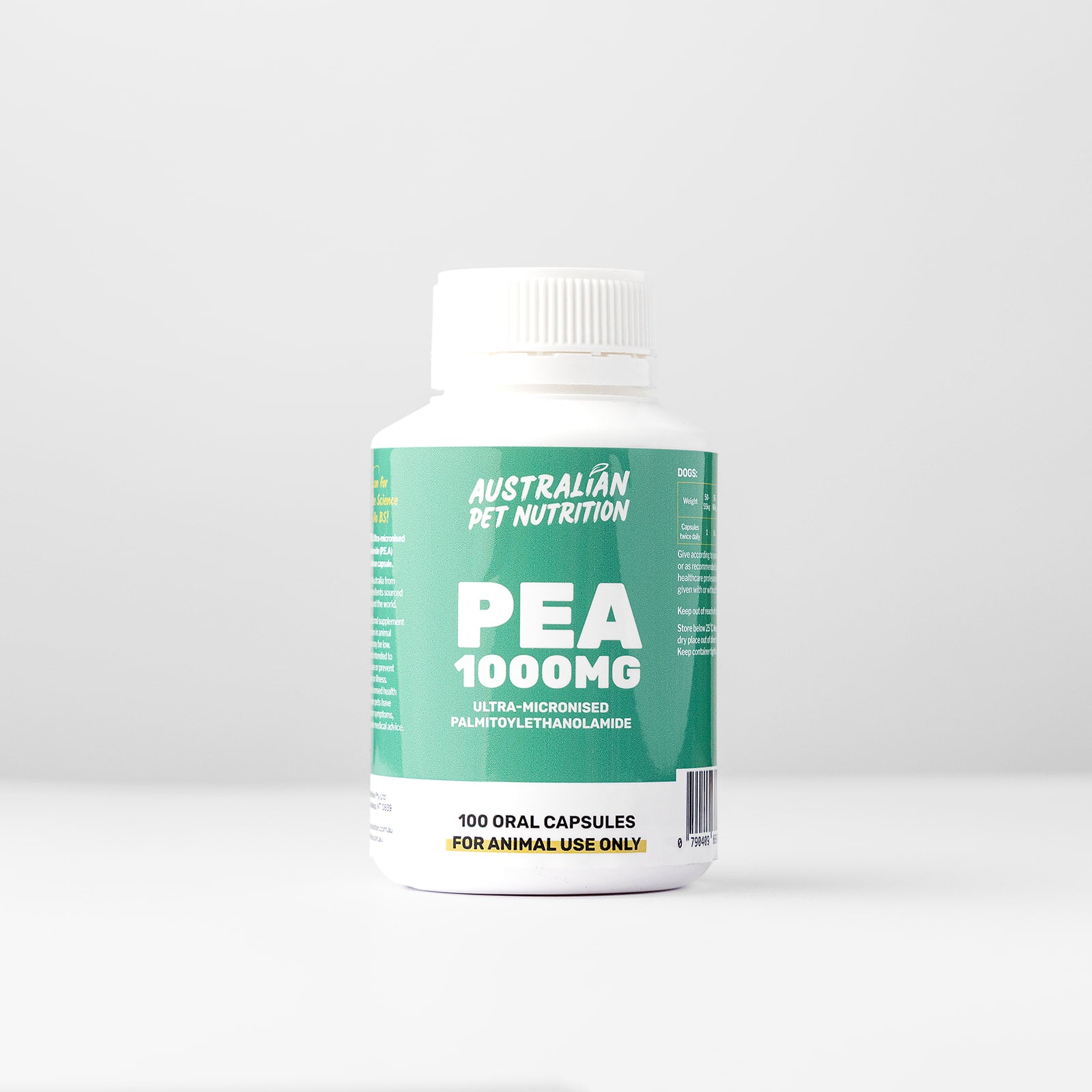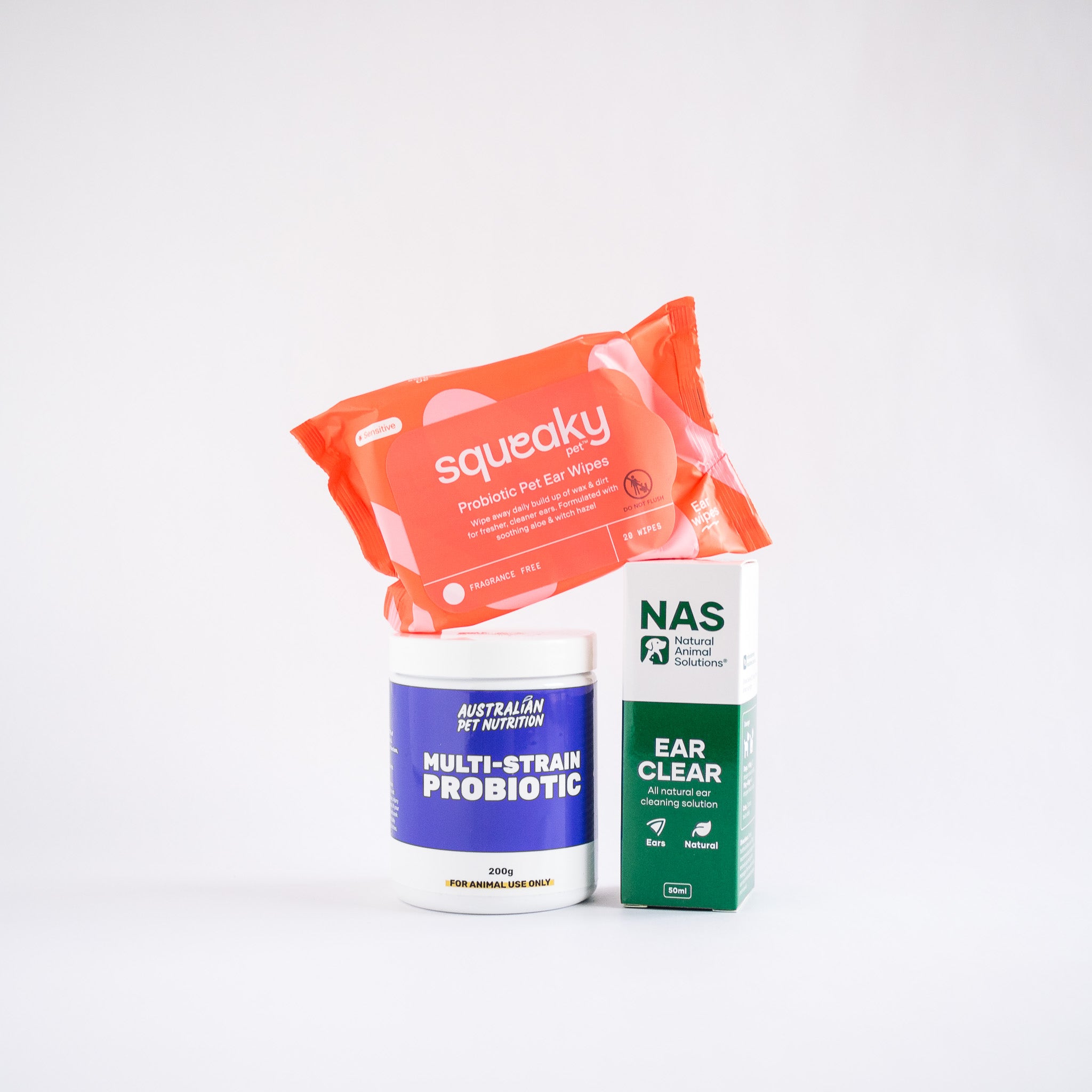Why Chicken and Rice May Not Be the Best Bland Diet for Sick Dogs
Is “Chicken and Rice” Really the Best for a Sick Dog?
Gentle, natural alternatives for digestive upset.
It’s one of those familiar lines we’ve all heard when a dog has an upset tummy:
“Just feed some chicken and rice.”
But when we look more closely, these so-called “bland foods” may not always be the best choice.
The Problem with Rice
Rice is a grain. While many dogs can digest small amounts of cooked rice, others struggle with grains — especially if they already have inflammation in the gut.
White rice in particular is almost pure carbohydrate, with a high glycaemic index. This means it’s quickly converted to glucose in the body, causing spikes in blood sugar. For a dog with digestive upset or inflammation, that quick-burn energy isn’t ideal.
Although rice is commonly used in “bland” diets because it’s low in fibre and residue, research hasn’t proven that rice is the most effective choice for soothing the canine gut. In fact, studies show dogs don’t have a strong nutritional requirement for carbohydrates at all.
So, while rice can be helpful short-term for some dogs, it’s not necessarily the most healing or species-appropriate option.
Why Chicken Can Be an Issue
Chicken is one of the most common protein sensitivities seen in dogs. There are a few possible reasons for this:
1. Farming practices – Most chicken sold in Australia is raised in large-scale, indoor systems on grain-based diets (typically wheat and sorghum). Contrary to some global practices, growth hormones are not used in Australian poultry production — their rapid growth is the result of selective breeding and nutrition, not hormones.
Antibiotics are not routinely added to feed, but they may be used under veterinary supervision to prevent or treat illness in flocks. These are tightly regulated, with strict withholding periods to ensure residues don’t enter the food supply.
That said, intensively raised chickens can have a different nutrient profile to free-range or organic birds — for example, lower omega-3 levels and altered fat composition. Some pet guardians notice that their dogs tolerate organic or free-range chicken better, though this varies from dog to dog.
2. Possible sensitivity links – Chicken is one of the most common proteins used in commercial dog foods, treats, and chews and it’s usually the first go-to protein for puppy parents and they often feed it in abundance. Because of this constant exposure, it’s also one of the most frequent causes of food sensitivities — not necessarily because chicken is “bad,” but because it’s over-represented in the diet.
Some integrative veterinarians also suggest that repeated immune stimulation, such as frequent vaccinations, might influence how the body reacts to certain proteins. This theory hasn’t been proven, but it’s an area of growing interest in holistic veterinary circles.
In traditional Chinese medicine, chicken is considered a “warming” food — thought to add internal heat and inflammation. When a dog is unwell, practitioners often recommend “cooling” foods instead to help calm and rebalance the body.
A Better Alternative: Pumpkin and Turkey
So what should you feed a dog with digestive upset instead?
Holistic veterinarian Dr Karen Becker recommends a simple, soothing combination:
coked lean turkey (ground or breast) with plain cooked and mashed or canned 100% pumpkin.
Here’s why pumpkin may be a better option than rice:
- High in soluble fibre: A cup of pumpkin provides around 7 grams of soluble fibre, compared with just 1.2 grams in white rice. Soluble fibre forms a gentle gel in the gut that slows digestion, helps firm stools, and soothes irritation.
- Rich in potassium: Dogs with diarrhoea lose electrolytes, including potassium, which can cause weakness or fatigue. Pumpkin provides a natural way to help restore balance.
- Supports blood-sugar stability: Pumpkin has a much lower glycaemic load than white rice and may support normal blood-sugar regulation — important for diabetic or sensitive dogs.
- Easier to digest: Unlike rice, which sometimes passes through undigested, pumpkin is nutrient-dense and gut-friendly.
Turkey is also a great choice — lean, mild, and less commonly used in commercial foods, so dogs with food sensitivities often tolerate it better.
Why Pumpkin Beats Rice Every Time
Rice might be “bland,” but that doesn’t automatically make it species-appropriate.
Dogs are carnivores by ancestry, designed to digest meat and fat more efficiently than starchy carbohydrates.
Pumpkin, on the other hand, offers natural fibre, antioxidants, and gentle digestive support.
When paired with lean turkey, it creates a soothing, healing meal that supports recovery without the drawbacks of grain-heavy ingredients.
How to Prepare a Gentle Healing Meal
- Cook the turkey:
- Use lean turkey breast or minced turkey.
- Boil or steam until cooked through.
- Drain off any fat or residue.
- Do not add salt, oil, or seasoning.
- Prepare the pumpkin:
- Use cooked or canned 100 % pure pumpkin (not pumpkin pie filling).
- In Australia, brands like Woolworths’ or Coles’ “100% Pumpkin Purée” are suitable.
- Combine:
- Mix about two parts pumpkin to one part turkey for an easy-to-digest meal.
- Offer small, frequent servings throughout the day.
- Transition back:
- Once your dog’s stools are firm and they’re feeling better, gradually reintroduce their regular balanced diet over two to three days.
Important Notes for Aussie Pet Parents
- Always ensure your dog has fresh water available.
- If symptoms persist beyond 24–48 hours, or if your dog is lethargic, vomiting repeatedly, or showing signs of dehydration, see your vet immediately.
- A home-cooked bland diet is a short-term measure only — it’s not nutritionally complete for long-term feeding.
- For ongoing digestive issues, an Integrative / Holistic vet or a qualified pet nutritionist can help assess food sensitivities and design a balanced, species-appropriate plan.
The Bottom Line
“Chicken and rice” has earned its reputation as a safe fallback, and it can certainly work for some dogs in the short term. But for sensitive tummies — or dogs that seem to react to chicken or grains — there are gentler, more species-appropriate alternatives.
A mix of lean turkey and pumpkin offers nourishment, fibre, and calm support for the digestive tract — helping your dog truly recover, not just settle temporarily.
Sources
- Carciofi, A. C. et al. (2008). Effects of six carbohydrate sources on dog diet digestibility and postprandial glucose and insulin response. Animal Feed Science and Technology, 141 (3–4), 339–355.
- De-Oliveira, L. D. et al. (2008). Nutrient digestibility and metabolizable energy of several carbohydrate sources for dogs. Animal Feed Science and Technology, 141 (3–4), 308–324.
- Laflamme, D. (2019). Carbohydrates in dog and cat nutrition: A review. JAVMA, 255 (5), 546–554.
- RSPCA Australia. (2023). Meat Chicken Farming in Australia.
- Becker, K. (2014). Pumpkin as a better fibre source than rice for dogs with digestive upset. Healthy Pets, Mercola.








